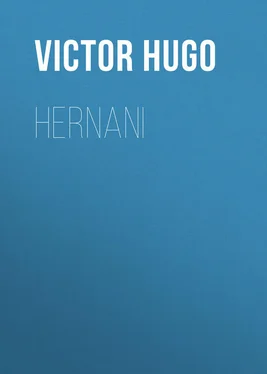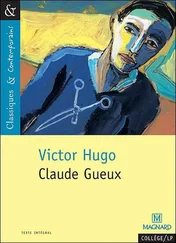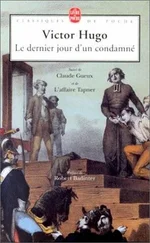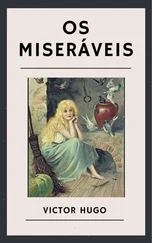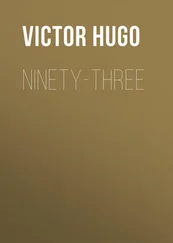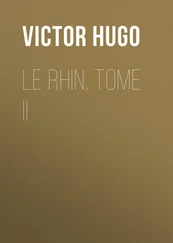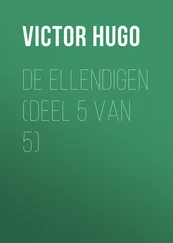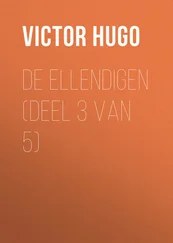Victor Hugo - Hernani
Здесь есть возможность читать онлайн «Victor Hugo - Hernani» — ознакомительный отрывок электронной книги совершенно бесплатно, а после прочтения отрывка купить полную версию. В некоторых случаях можно слушать аудио, скачать через торрент в формате fb2 и присутствует краткое содержание. Жанр: literature_19, foreign_antique, foreign_prose, на французском языке. Описание произведения, (предисловие) а так же отзывы посетителей доступны на портале библиотеки ЛибКат.
- Название:Hernani
- Автор:
- Жанр:
- Год:неизвестен
- ISBN:нет данных
- Рейтинг книги:3 / 5. Голосов: 1
-
Избранное:Добавить в избранное
- Отзывы:
-
Ваша оценка:
- 60
- 1
- 2
- 3
- 4
- 5
Hernani: краткое содержание, описание и аннотация
Предлагаем к чтению аннотацию, описание, краткое содержание или предисловие (зависит от того, что написал сам автор книги «Hernani»). Если вы не нашли необходимую информацию о книге — напишите в комментариях, мы постараемся отыскать её.
Hernani — читать онлайн ознакомительный отрывок
Ниже представлен текст книги, разбитый по страницам. Система сохранения места последней прочитанной страницы, позволяет с удобством читать онлайн бесплатно книгу «Hernani», без необходимости каждый раз заново искать на чём Вы остановились. Поставьте закладку, и сможете в любой момент перейти на страницу, на которой закончили чтение.
Интервал:
Закладка:
Victor Hugo
Hernani
PREFACE
The text of this edition is the same as that of the édition définitive , Paris, 1880. The unusual length of the introduction will be pardoned, it is hoped, in view of the paucity of general reviews of modern French literature that are available for students in schools and some colleges. It contains the matter which I should require a class of my own to get up for examination in connection with reading this play or any other of Hugo's works. The Historical Note is a necessity, and is introduced before the play to save students from confusion and waste of time.
Mr. H.A. Perry and Dr. John E. Matzke, in their editions of «Hernani», have so thoroughly annotated it that it has been impossible to avoid the appearance of following them very closely; and there are indeed several notes for which I am directly indebted to them. Without their indications, I should in other cases have been obliged to spend a great deal more time in looking up references than has been necessary. It would be unfair to Dr. Matzke, in particular, not to pay tribute to the completeness of his notes, which leave his successor little chance for originality.
GEORGE McLEAN HARPER. PRINCETON UNIVERSITY June 16, 1894.
VICTOR HUGO
For American and English readers who are at all well informed about modern European literature the name of Victor Hugo stands out more prominently than any other as representing the intellectual life of France since the fall of Napoleon. Even the defects of his character are by many considered typically French. They see him excessively conceited, absurdly patriotic, a too voluminous producer of very varied works; and it is not unusual to find that such readers believe him to be all the more French for these peculiarities. It would open their eyes if they should read what M. Ferdinand Brunetière, the most authoritative French critic of our generation, says of Victor Hugo. They would be surprised, if they conversed with intelligent Frenchmen generally, to hear their opinions of him. Indeed if they had a wider acquaintance with French letters and French character they would not need M. Brunetière or any other guide, because they would feel for themselves that Hugo must seem to the French just as peculiar, just as phenomenal, as he does to foreigners. For it is only to superficial readers that French literature can appear to be in the main frivolous or eccentric. Dignity is not necessarily severe. It cannot be heavy; indeed, grace is of its essence. And dignity is the note of French literature in the seventeenth century, its Augustan age. To say that seriousness is the note of the eighteenth-century literature in France may sound less axiomatic, but I think it is even more true. No men are more serious than those who believe it to be their mission to revolutionize and reform society. We may not now take Diderot and Voltaire and Rousseau as seriously as they took themselves; but that is partly because their purposes have been to a large extent achieved, and the result is an old story to us. The note of the nineteenth century in French literature is harder to catch, perhaps cannot be caught; for the voices are many, and we are too near the stage. But if anything is evident it is that this epoch is marked by severe and conscientious industry. Criticism has been developed into an almost perfect instrument for quick, sure testing of literary claims. A perverse book may, through neglect, through its insignificance, or indeed through its very absurdity, find a large number of gentle readers in England or America. In France less favor would be shown it. The artistic sense is more widely diffused there; life centres in Paris, where values can be readily compared; and, above all, the custom of personal journalism prevails in France. A man is not going to waste his time in reading a new book if the critic most competent to judge condemns it over his own signature in the morning paper. And if a new book is so insignificant that no critic reviews it, the condemnation of silence is even more annihilating. Then, too, the competition for literary honors is intense. The rewards are greater than in any other country: a seat in the Academy; a professor's chair in the College de France; an office of dignity and pecuniary value under government; the knowledge that a successful French book will sell from St. Petersburg to Madrid, and from Amsterdam to Constantinople – all over the world, in fact; for in nearly every country people read two languages – their own and French. In this competition it may not always be the best-written books that come to the front; but the chance of their doing so is immensely greater than elsewhere. And another beneficial result is the careful toil bestowed upon the preparation of books, the training to which authors submit themselves, the style and finish, the lopping off of eccentricities and crudities, the infinite pains, in short, which a writer will take when he knows that his fate depends on his pleasing first of all a select and cultivated audience of connoisseurs . No journeyman work will do.
It was by such a tribunal that Victor Hugo was judged, long before his name was known outside of France. And yet, although the popular voice has been immensely favorable to him for two generations, this high court of criticism has not decided the case. The position of Victor Hugo is by no means definitely established, as Alfred de Musset's is established, and Balzac's. But, whatever be the verdict, Victor Hugo, because of the power and quantity of his work, and his long life, certainly is the most imposing figure of this century in French literature.
It is often a questionable proceeding to make one man's life and works interpret for us the doings of his contemporaries, to try to find in one term the expression for a whole series of events. It is the most convenient method, to be sure, but not on that account the most reliable. When therefore I remembered that Victor Hugo entered into prominence only a little after the beginning of our century, and that although dead he yet speaks, for the definitive edition of his works is not completed, and every year adds new volumes of posthumous books to that enormous succession; when I perceived how convenient it would be to make him the central and distributive figure of this whole epoch in French literary history, – I regarded the chronological coincidence rather as a temptation than as a help, and resolved not to yield to the solicitations of a mere facile arrangement. For I had no great belief in Victor Hugo's fitness to be called the representative and interpreter of his age. I was under the influence of the prevailing Anglo-Saxon opinion of him as an egoist, whom even the impulsions of his mighty genius could not break loose from absorbed contemplation of self.
Even a critic so appreciative of national differences as Lowell expressed this opinion when he said: «In proportion as solitude and communion with self lead the sentimentalist to exaggerate the importance of his own personality, he comes to think that the least event connected with it is of consequence to his fellow-men. If he change his shirt, he would have mankind aware of it. Victor Hugo, the greatest living representative of the class, considers it necessary to let the world know by letter from time to time his opinions on every conceivable subject about which it is not asked nor is of the least value unless we concede to him an immediate inspiration.»
Let us take another of these estimates, which might well deter one from considering Hugo as capable of representing any body of men or any mass of life. I quote Mr. W. E. Henley, in «Views and Reviews», a little volume of bright and suggestive «appreciations», as he calls them: «All his life long he was addicted to attitude; all his life long he was a poseur of the purest water. He seems to have considered the affectation of superiority an essential quality in art; for just as the cock in Mrs. Poyser's Apothegm believed that the sun got up to hear him crow, so to the poet of the «Légende» and the «Contemplations» it must have seemed as if the human race existed but to consider the use he made of his oracular tongue.»
Читать дальшеИнтервал:
Закладка:
Похожие книги на «Hernani»
Представляем Вашему вниманию похожие книги на «Hernani» списком для выбора. Мы отобрали схожую по названию и смыслу литературу в надежде предоставить читателям больше вариантов отыскать новые, интересные, ещё непрочитанные произведения.
Обсуждение, отзывы о книге «Hernani» и просто собственные мнения читателей. Оставьте ваши комментарии, напишите, что Вы думаете о произведении, его смысле или главных героях. Укажите что конкретно понравилось, а что нет, и почему Вы так считаете.
